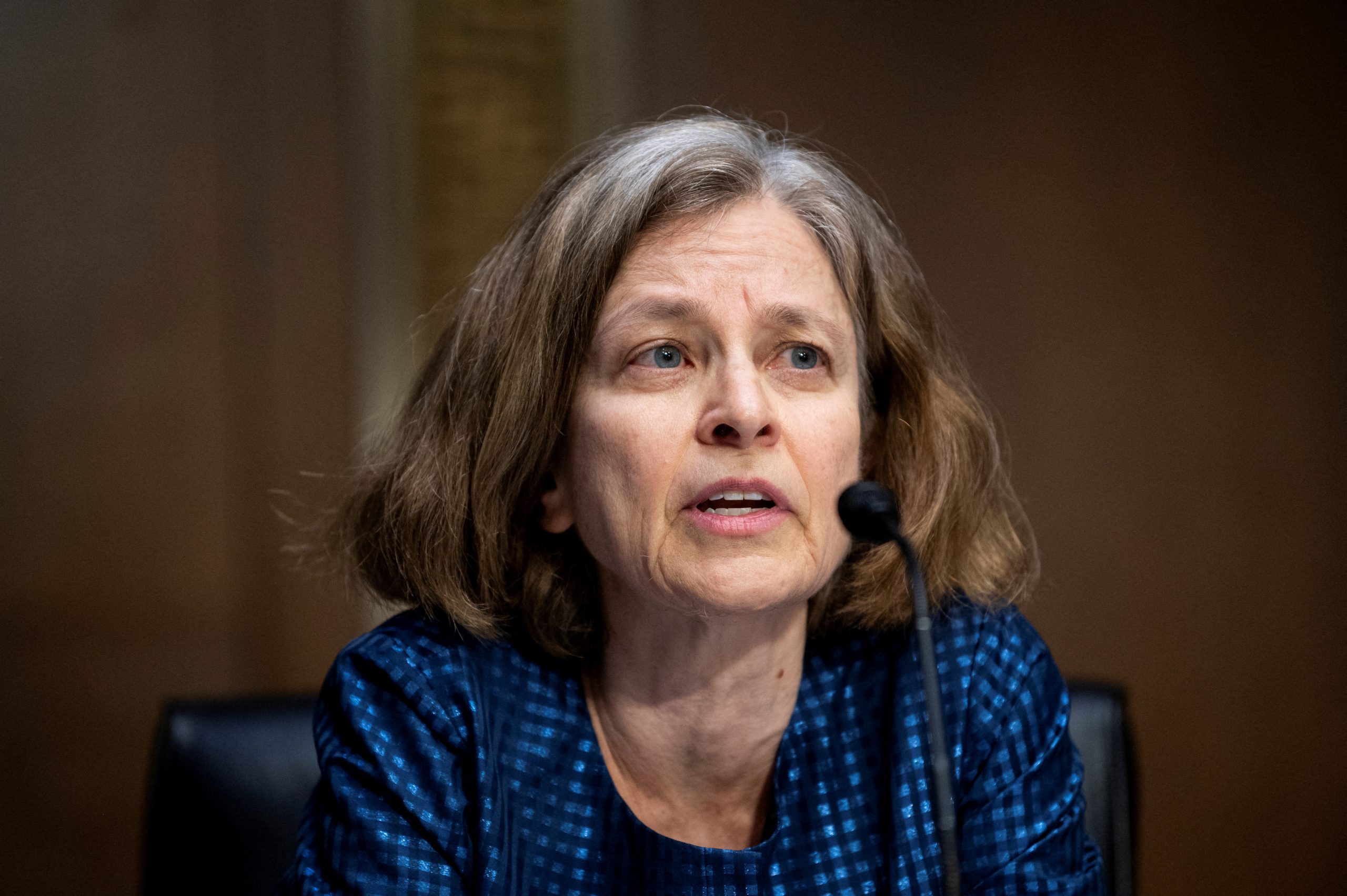
Matt Bush, FISM News
[elfsight_social_share_buttons id=”1″]
Republicans on the Senate Banking Committee boycotted a vote yesterday in protest of President Biden’s nomination of Sarah Bloom Raskin as the top banking regulator. The boycott also held up the vote for the other four nominees to the seven-man board, including current Fed Chair Jerome Powell.
In a statement released Tuesday, Sen. Patrick Toomey (R-Pa.), senior GOP member on the committee, said, “Last week, I told Chairman Brown that Republican Committee members would agree to proceed with a markup on all outstanding nominations except that of Sarah Bloom Raskin.”
The chairman of the committee, Sherrod Brown (D-Ohio) chided Toomey over the boycott, saying, “Toomey chose to abdicate his duty to the American people and put our economic recovery at risk, instead of doing his job and showing up to vote on Ms. Bloom Raskin, Dr. Cook, Dr. Jefferson, Gov. Brainard, and Chair Powell’s nominations.”
The Republicans blocking of Raskin does not appear to be strictly politically motivated but also motivated by past ethics issues. Republicans on the committee are accusing Raskin of influence peddling after leaving a post in the Obama administration to become director for fintech firm, Reserve Trust.
In 2017, Reserve Trust was denied a “master account” by the fed, but soon after Raskin joined the board at Reserve Trust later that same year, she lobbied the Kansas Federal Reserve to approve the account. One year later, with little other changes at the company, Reserve Trust’s application was approved, leading many to believe that Raskin had misused her connections to benefit the company.
According to Columbia Law’s website, “Having an account at one of the twelve Federal Reserve Banks (a master account) is necessary for an institution to have direct access to the Federal Reserve’s payment systems and to settle transactions with other participants in central bank money.” Having an account is both coveted and vital for doing business for a company like Reserve Trust.
Republicans have said that they did not simply boycott the vote just to come back to the table in a couple of days and acquiesce. Fox Business reported that Toomey said, “Committee Republicans aren’t seeking to delay her vote. We’re seeking answers…Until basic questions have been adequately addressed, I do not think the committee should proceed with a vote on Ms. Raskin.”
Republicans have also raised concerns with Raskin’s vow to focus on climate change in her role, something that they have said is not a financial issue.
The White House has denied any claim that Raskin had abused her position in the past, calling the Republicans posturing a “smear campaign.” White House spokesperson Mike Gwynn said the reason that Reserve Trust was granted a master account had nothing to do with Raskin’s presence at the company, saying the company had “changed its business model…in a manner that meant [Reserve Trust] met the definition of a depository institution.”
This development further illustrates the effects of the power-sharing agreement enacted in the 50-50 Senate. According to the Washington Post, “Under that agreement, the full Senate can vote to discharge nominations that have been subject to a tied committee vote. But Republicans can block votes from happening in Senate committees, which are also divided evenly between the parties, by refusing to attend, thus denying a quorum.”
Brown could easily call for a separate vote on the four candidates and move forward with all but Raskin’s nomination, but has said she does not have any intention of “cherry-picking candidates.”
The question is, “Who will blink first?” Will Republicans hold to their guns and continue to stall the nominations or will Democrats back down and choose from one of the other candidates qualified to be bank regulator.
